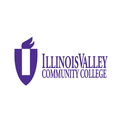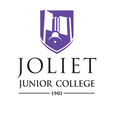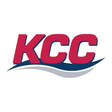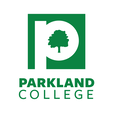We are part of a larger network of workforce development federal and state agencies. Our sole purpose is to help individuals achieve their career goal through resume development, job search tactics, financial support while attending school to earn a certificate or degree for a high growth occupation, and more. We are not a staffing agency, but offer tools and resources to help individuals successfully meet their goal and assist local employers with recruiting to help meet hiring needs.
Our work is driven by the Workforce Innovation and Opportunity Act (WIOA). WIOA is a grant awarded by the U.S. Department of Labor’s Employment and Training Administration. WIOA is landmark legislation that is designed to strengthen and improve our nation's public workforce system and help get Americans, including youth and those with significant barriers to employment, into high-quality jobs and careers and help employers hire and retain skilled workers. WIOA is designed to help job seekers access employment, education, training, and support services to succeed in the labor market and to match employers with the skilled workers they need to compete in the global economy.
The WIOA grant for Livingston County, Illinois is administered through Kankakee Community College as the grant recipient for both Livingston and Kankakee Counties, awarded by the Workforce Board. Livingston Workforce Services is an affiliate office located in Pontiac, Illinois which facilitates the WIOA title I Adult, Dislocated Worker, and Youth Programs for Livingston County, Illinois.
Our work is driven by the Workforce Innovation and Opportunity Act (WIOA). WIOA is a grant awarded by the U.S. Department of Labor’s Employment and Training Administration. WIOA is landmark legislation that is designed to strengthen and improve our nation's public workforce system and help get Americans, including youth and those with significant barriers to employment, into high-quality jobs and careers and help employers hire and retain skilled workers. WIOA is designed to help job seekers access employment, education, training, and support services to succeed in the labor market and to match employers with the skilled workers they need to compete in the global economy.
The WIOA grant for Livingston County, Illinois is administered through Kankakee Community College as the grant recipient for both Livingston and Kankakee Counties, awarded by the Workforce Board. Livingston Workforce Services is an affiliate office located in Pontiac, Illinois which facilitates the WIOA title I Adult, Dislocated Worker, and Youth Programs for Livingston County, Illinois.
|
The WIOA grant is funded by the Grundy Livingston Kankakee Workforce Board. The Workforce Board oversees and sets policy for workforce development and training programs for Grundy, Livingston, and Kankakee Counties. It is one of 26 such local boards across the State of Illinois. The Workforce Board is comprised of a variety of private and public sector members representing industries from across the three-county area, as well as public sector and social service agencies involved in workforce development. Board activities and programs are designed to meet both the needs of the communities' businesses and the needs of job seekers and those who want to further their careers.
|
We are an Illinois workNet Center. The goal of Illinois workNet is to help individuals and employers achieve their training and employment goals. Individuals have access to an array of tools and resources to help them find jobs, explore careers, and find additional supports such as financial aid to help find work. Employers can receive services for hiring and placement, labor market information, and employee training. Illinois workNet is sponsored by the Illinois Department of Commerce and Economic Opportunity and made possible through state, local, and private sector partnerships.
|
We are a proud partner of the American Job Center network. We are one of nearly 2,400 American Job Centers located throughout the United States, funded by the U.S. Department of Labor’s Employment and Training Administration. American Job Centers provide free help to job seekers for a variety of career and employment-related needs.
|
WIOA Core and Required Partners
We are connected with WIOA state-level core and required partners as well as provide referrals to local service agencies. For a list of local agencies, visit our Community Resources page.
Illinois Community Colleges offer Adult Education & Literacy and Career & Technical Education programs. Adult Education in Illinois provides services that assist adults in improving their skills, achieving their educational goals, and transitioning to further education or employment. Career and Technical Education (CTE) prepares individuals for high-skill, in-demand employment that furthers Illinois’ global competitiveness.
The Adult Education and Family Literacy Act (AEFLA), Title II of the Workforce Innovation and Opportunity Act, supports and promotes adult education and literacy services that help adults get the basic skills they need including reading, writing, math, English language proficiency, and problem-solving to be productive workers, family members, and citizens. The purpose of the program is to provide educational opportunities below the postsecondary level for individuals 16 or older, who are not currently enrolled in school, who lack a high school diploma, or who lack the basic skills to function effectively in the workplace and in their daily lives. Instructional services are offered in four program areas: ABE – basic skills instruction below the high school level; ASE – high school level instruction; IELCE – integrated English literacy and civics education; and ELA – English language acquisition instruction.
Career and technical education (CTE) programs are offered at the postsecondary level, authorized under the Carl D. Perkins Career and Technical Education Act of 2006. CTE prepares learners for college and careers by providing academic and technical skills needed to succeed in the workforce. CTE aligns education and the workforce to ensure that today’s students are learning the skills needed in the competitive job market.
The Adult Education and Family Literacy Act (AEFLA), Title II of the Workforce Innovation and Opportunity Act, supports and promotes adult education and literacy services that help adults get the basic skills they need including reading, writing, math, English language proficiency, and problem-solving to be productive workers, family members, and citizens. The purpose of the program is to provide educational opportunities below the postsecondary level for individuals 16 or older, who are not currently enrolled in school, who lack a high school diploma, or who lack the basic skills to function effectively in the workplace and in their daily lives. Instructional services are offered in four program areas: ABE – basic skills instruction below the high school level; ASE – high school level instruction; IELCE – integrated English literacy and civics education; and ELA – English language acquisition instruction.
Career and technical education (CTE) programs are offered at the postsecondary level, authorized under the Carl D. Perkins Career and Technical Education Act of 2006. CTE prepares learners for college and careers by providing academic and technical skills needed to succeed in the workforce. CTE aligns education and the workforce to ensure that today’s students are learning the skills needed in the competitive job market.
|
Illinois Department of Employment Security connects individuals to unemployment insurance, career and labor market information, and special programs such as migrant and seasonal farmworker program, re-entry employment service, and veterans services.
|
Illinois Department of Human Services helps families achieve self-sufficiency, independence and health to the maximum extent possible. Two of their programs are core for WIOA 1) Vocational Rehabilitation (VR) and 2) Temporary Assistance for Needy Families (TANF).
VR helps people with disabilities find employment that pays a living wage and offers a chance for advancement. TANF provides temporary financial assistance to help pay for food, shelter, utilities, and expenses other than medical for pregnant women and families with one or more dependent children. |
Mid Central Community Action (MCCA) provides a range of services to help low-income individuals achieve self-sufficiency through the Community Services Block Grant (CSBG). MCCA bundles services to coach individuals on financial stability, employment, housing, credit building and income supports.
|
The Senior Community Service Employment Program (SCSEP) is the largest federally-funded program specifically targeting older adults seeking employment and training assistance. The goal of SCSEP is to help participants gain work experience and overcome barriers by receiving on-the-job training at not-for-profit, 501(c)(3) community based organizations or government agencies. The dual purpose of the SCSEP program is to provide community service while also improving participant’s job skills to enable them to find full or part-time unsubsidized employment.
|













